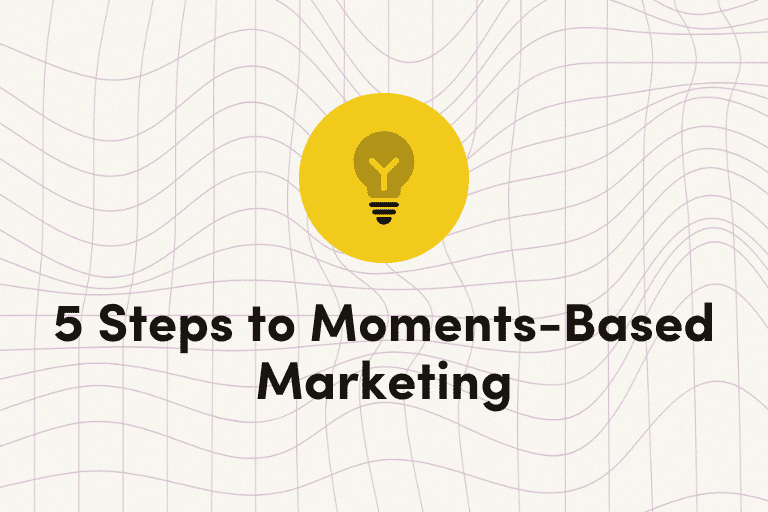What is Digital Transformation?
Digital transformation refers to the practice of adopting digital technology to improve your business processes. In many cases, it involves automating operations that were previously done manually, or integrating different solutions into one centralized unit.
Organizations have been embarking on digital transformation projects at a rapid rate, especially in the wake of the COVID-19 pandemic. McKinsey found that COVID-19 pushed companies to expedite their digital transformation plans by three to four years.
Digital transformation can be applied to all areas of the business, including finance, operations, L&D, HR, and legal. In this article, we’ll look at how it can come into play within the marketing department.
Digital Transformation Strategy in Marketing
Some digital processes have been used for many years in marketing. In fact, email marketing first got its start more than 40 years ago, in 1978.
However, in the years since digital tools became common in the marketing industry, many brands have had difficulty integrating their various marketing channels. This can result in siloed teams, a lack of visibility into customer data, and a lot of extra manual work that may result in errors.
It’s often difficult for marketing teams to easily track the return on investment (ROI) of their campaigns, which means you may be pouring money into the wrong programs. And, because your marketing team’s messaging isn’t customized to each customer’s journey, your customers may get frustrated by ad fatigue and irrelevant messaging, leading to disengagement and churn.
To develop a cohesive approach to cross-channel marketing, it’s important to prioritize digital transformation. This can entail adopting a comprehensive cross-channel marketing platform, like Iterable, where you can integrate all of your marketing data into a single source of truth.
People, Process, and Technology
In order to develop an effective digital transformation strategy, it’s essential to focus on your people, process, and technology.
First, people come into play because it’s crucial to align teams around your strategy. By breaking down silos and encouraging cross-departmental collaboration, you can help foster strong relationships that will facilitate innovation throughout your organization. If you’re able to advocate for your digital transformation strategy and encourage all of your departments to participate in its progress, you can draw from each team’s strengths and experience to move your business forward.
Next, when focusing on process, it’s increasingly important for brands to act with agility. It's almost a certainty (98%) that organizations have seen improved outcomes from becoming more agile, with benefits such as accelerated delivery, better project visibility, improved team productivity, and stronger management of changing priorities. By moving from a mindset with fixed expectations to one in which your stakeholders are willing to reevaluate projects frequently and optimize based on current status, you’ll be able to reduce development costs and timelines.
Finally, technology plays a significant role in your digital transformation. By choosing an all-in-one solution that enables you to centralize your data in one location and draw from it to develop real-time, personalized marketing campaigns, you’ll be able to optimize the customer experience while improving your team productivity.
The Benefits of a Digital Transformation Strategy
Prioritizing a digital transformation strategy for your marketing team is a way to increase productivity and efficiency, improve your customer experience, and better track your ROI.
Digital transformation can help you automate previously manual workflows, eliminating many hours of manual labor and making it easy for your marketing team to set up their own tests and experiments without technical support. That makes it easy for them to iterate on their work and optimize to improve results, ensuring that they can continually improve performance across all of their campaigns.
By integrating all of your channels so that they work in sync, you can eliminate redundancies and ensure that every customer has a cohesive experience with your brand, all the way from first interaction to post-purchase. When they receive messages across different channels, they’ll be sequenced and attuned to the customer’s behavior, ensuring that each interaction is unique and engaging. This can help to drive click-through rates, conversions, and customer retention.
With complete visibility into the performance of every marketing channel, both individually and together, you can gain detailed insights into which channels perform best with which audiences. Plus, you can use predictive analytics to understand how much revenue you can expect to earn from every customer segment based on their past behavior. This can help you optimize your marketing campaigns and understand where to invest your budget to achieve the best results.
Digital transformation is important to every facet of your business. By ensuring that your marketing organization has moved to an integrated approach to storing customer data and building cross-channel campaigns, you can help your marketing team drive your business forward and deliver engaging customer experiences that will help you increase revenue and brand loyalty.
Contact Iterable to get started building your own digital transformation strategy for your marketing team.































